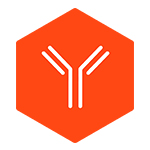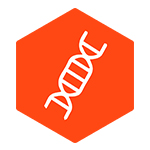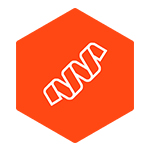Core Overview
Ready to Request a Service?
Log into CrossLab and submit a submission ID. New to CrossLab? Click here to become a customer
Bioinformatics
The Bioinformatics core offers bioinformatics consulting and data analysis services to help researchers toward an in-depth understanding of large-scale data sets acquired from next generation DNA sequencing (NGS: Illumina, and PacBio systems), gene expression, and array-based technologies. We collaborate with researchers in designing experiments and analyzing complex datasets by applying various data-analytical and theoretical methods, mathematical modeling and computational simulation techniques. We develop multiple comprehensive pipelines enabling large-scale data processing, including NGS data analysis (e.g., RNA-Seq, DNA-Seq, methyl-Seq and ChIP-Seq), transcriptome and genome annotation (project-based EST/genomic sequence assembly, annotation, and gene prediction), microarray-based data analysis (statistical and functional data analysis from major microarray platforms of various species), metagenomics (characterization of environmental microbial communities). Bioinformatics staff members have extensive experience in bioinformatics, genomics, transcriptomics, medical informatics, and translational research. Our expertise includes software and database development, big data analysis and statistics, and high-performance computing.
Services & Fees | Core Resources | Staff & Contact | Blog
Cytometry
The Flow Cytometry core provides a variety of tools and expertise for cellular measurements. The laboratory incorporates numerous flow cytometers, from simple entry-level devices to high-end 5-laser, 16-parameter instruments to analyze or sort cells. In addition, the laboratory offers a laser scanning confocal microscope. The microscope is well equipped with a variety of excitation lines from near UV to red and can collect 3 to 4 emission colors (depending on dye combinations), with viable cell time lapse and extensive computed parameter capabilities, including FRET, FRAP, image stitching, and 3D reconstruction.
CTAC | Services & Fees | Instruments | Core Resources | Staff & Contact
Electron Microscopy
The Electron Microscopy core supports researchers in visualizing structures of microscopic samples by carrying out imaging projects and user training to facilitate solving research questions and promote acquisition of grants. Major service categories include: transmission and scanning electron microscopy, confocal laser scanning and epiflourescence microscopy, preparation of samples for microscopic analyses, and training users to operate microscopes and ancillary equipment.
Services & Fees | Instruments | Core Resources | Contact Core
Gene Expression & Genotyping
The Gene Expression service provides state-of-the-art technical services and consultation on Affymetrix and Agilent gene expression arrays and miRNA arrays, RNA-seq libraries (low and high-throughput using the Agilent Bravo robot), sequence capture libraries, and up-to-date gene expression analysis methods, allowing scientists to be on the cutting edge of research.
Quantitative PCR services are also provided by the Gene Expression & Genotyping core. Instruments include those which support SYBR® or TaqMan™ reagents allowing absolute, relative, relative standard or comparative Ct quantification. Applications may include quantitative gene expression analysis, pathogen detection/quantification, allelic discrimination (SNP detection). Self-service training and instrumentation are also available.
The Genotyping service provides a variety of genotyping services including fragment analysis using the Advance FS96 and AB3730 (96 capillary technology), development of microsatellite libraries using Illumina MiSeq sequence data, Illumina SNP and gene expression data, and genotyping using mouse tails or ear punches.
Services & Fees | Instruments | Core Resources | Contact Core
Monoclonal Antibody
The Monoclonal Antibody core develops new mouse monoclonal antibodies for investigators to use in basic and applied research. Major service categories include: immunization of mice, cell fusion, cell cloning, screening by ELISA and Western blot, monoclonal antibody production, purification, and labeling, monoclonal antibody analyses such as antibody/antigen affinity measurements, epitope binning, and identification of matched antibody pairs. Customer training on select self service instruments is also offered.
Services & Fees | Instruments | Core Resources | Reagents | Contact Core
NextGen DNA Sequencing
The NextGen DNA Sequencing core provides quality, massively parallel, high-throughput sequencing data using the most current instrumentation, such as PacBio, Illumina NextSeq, MiSeq, and HiSeq, covering a broad range of sequencing applications for biological research. Customers are encouraged to consult with core staff for the purpose of tailoring data acquisition to specific research questions.
Services & Fees | Instruments | Core Resources | Contact Core
Proteomics & Mass Spectrometry
The mission of the Proteomics & Mass Spectrometry core is to provide superb proteomics services to customers from University of Florida, the state. and the nation, and to train and educate faculty, staff and students in state-of-the-art proteomics and mass spectrometry technologies.









